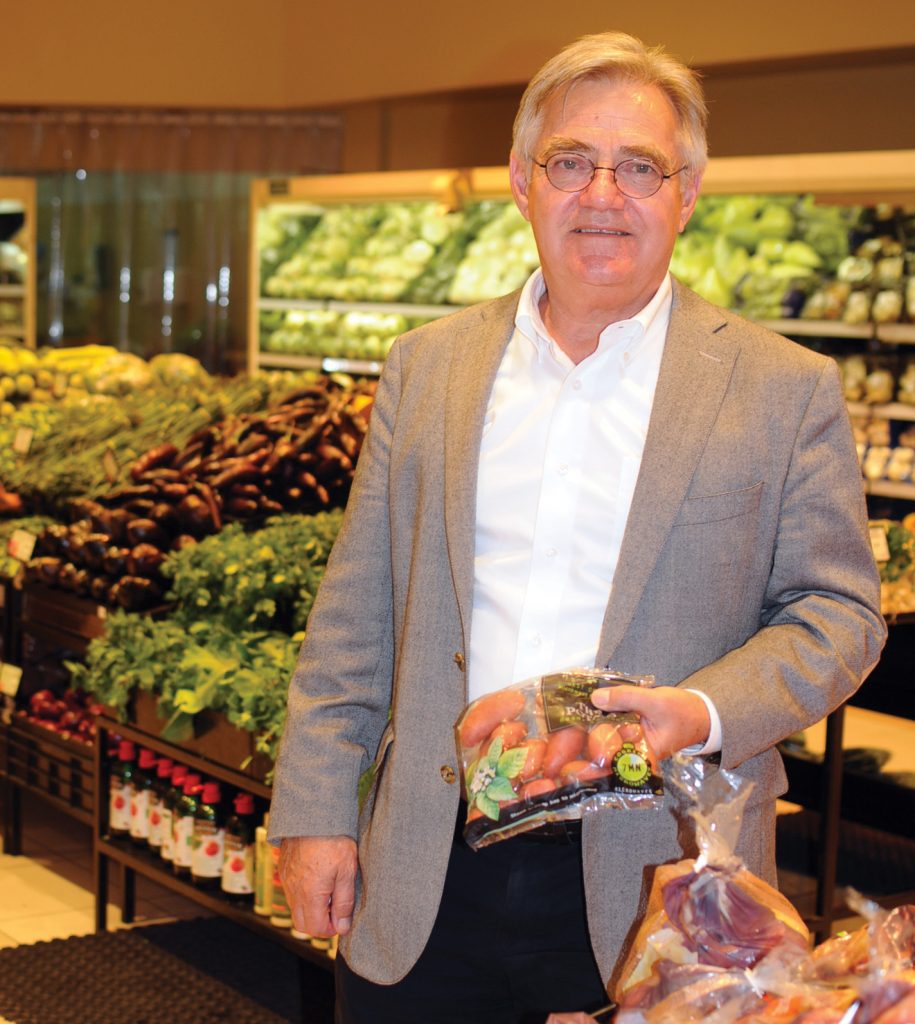Healthy eating trend in the Gulf
Premium supermarket chains like Spinneys have opened 50% more shops and are investing in new logistics operations
Spinneys’ CEO Jannie Holtzhausen confirms a 15% annual sales increase and the continuous expansion of the chain in the Gulf. Spinneys stores have increased from 40 to 66 units over the last 3 years, with formats of 10,000-40,000 square feet. The chain also includes a few convenience formats between 2,500 and 4,000m2. Its estimated food retail market share in the UAE is between 7 and 8%.
“Due to our strong focus on fresh produce, our sales of fruit and vegetables have grown 17%, above the average for the other food categories,” Holtzhausen highlighted. The pre-packing of specific categories has helped stimulate sales, particularly for berries, cherries and grapes. “The growing interest in healthy habits is helping boost fruit and vegetable sales in all consumer categories,” Holtzhausen said. This global trend of increased health consciousness is also seen in the GCC countries, inducing consumers there to buy fresh rather than processed products. When asked about Spinneys’ approach of customer profiling, Holtzhausen said it preferred to focus on stores and categories to improve sales and performance as: “We manage products, not customers”.
“Ready-to-cook” vegetables successful
The chain has successfully developed a full line of pre-cut, “ready-to-cook” vegetables over the last 4 years which now has more than 15 items. Among the popular ones are baby potatoes (microwavable), cut beans, baby cabbage, squash, peppers and mixed vegetables. Each item comes in two sizes: smaller packages for individuals and larger formats for families. The microwavable potatoes product has become the most successful, due to its convenience, and enjoyable taste and firm skin on eating. “Surprisingly, the smaller and baby potatoes outperform the standard potato line in the medium and higher consumer segment,” Holtzhausen pointed out.
“But pre-cut fruits are now our fastest growing range,” he said. Most of the items are made at the farm and sourced from various African countries (Tanzania, Kenya, Senegal and Zimbabwe). Holland remains the main supplier for vegetables though in general its origins have become more diversified.
Berries continue to enjoy strong sales. Strawberries and blueberries dominate but a full assortment is offered. About two thirds are sourced from North and South America, 25% from Europe (still very seasonal), and some also from Australia and New Zealand. “We believe the most successful suppliers will be Egypt and Peru,” Holtzhausen predicted. Lettuces come mainly from Europe (85% from Spain and Holland), with still only 5% from Africa. “We hope Africa, being closer, will become a major supplier of lettuce as it has a more predictable climate and better political milieu.”
Tasty, Fresh and Healthy
“We have a quite large team of 10 food scientists, looking closely at our suppliers with regular audits at their farms and packing houses, particularly for fresh cuts items.” GlobalGAP protocol is required as much as possible. US and European items are naturally all certified, the other origins are audited by Spinneys’ own quality managers.
Logistics is an essential part of the a total control of the foodchain. Over a third of fruit and vegetables are directly imported and most are stored and handled within Spinneys’ own facilities. The group is now busy constructing a new logistics centre for dry, frozen and chilled products which will be located in Kizard, Abu Dhabi. “Our plan for the next three years is to continue to expand as fast as the economy will allow,” Holtzhausen said.
PE


